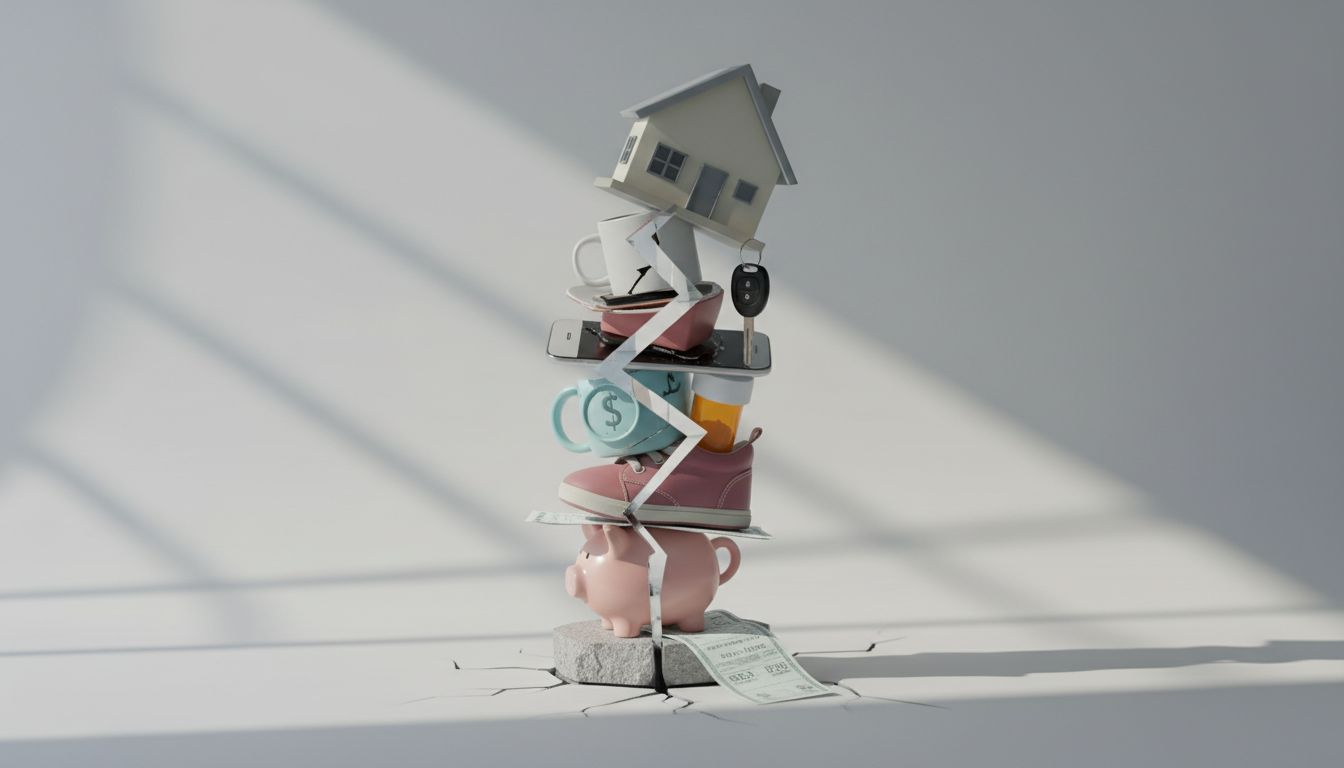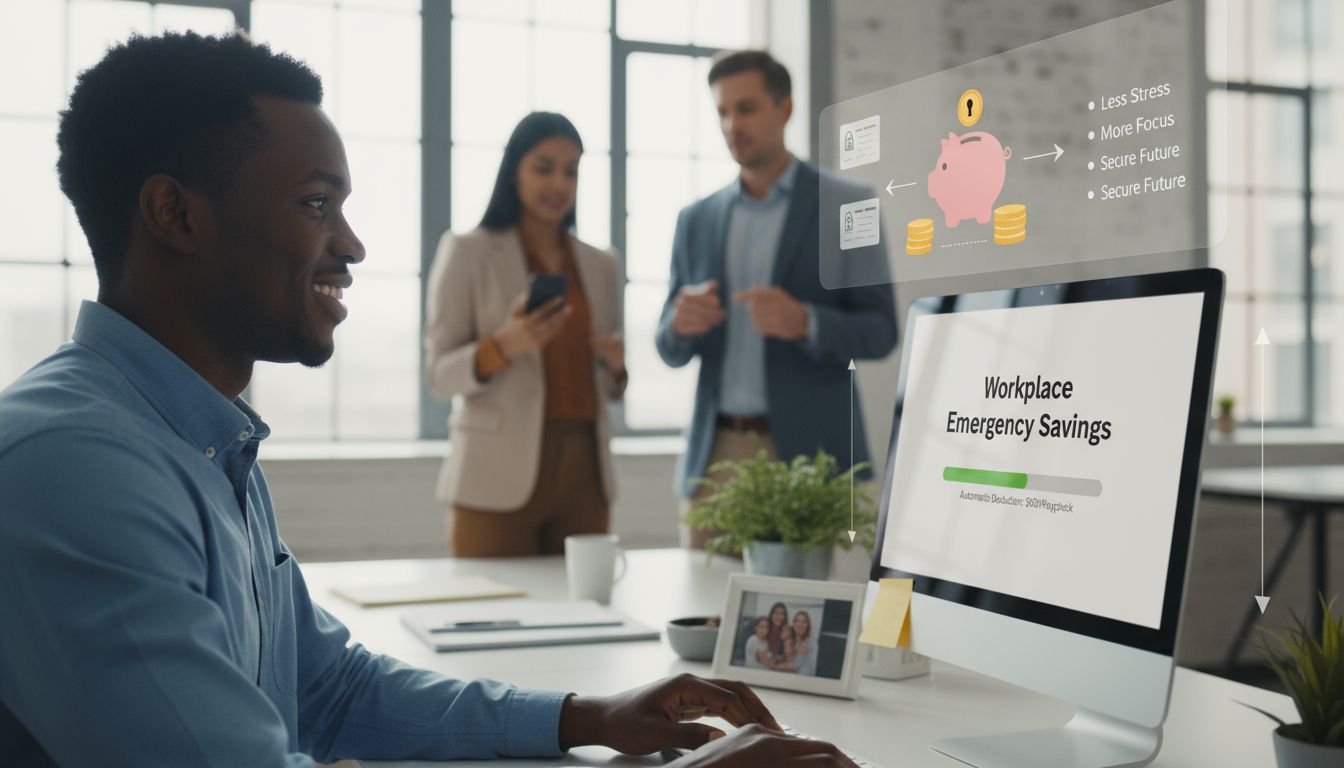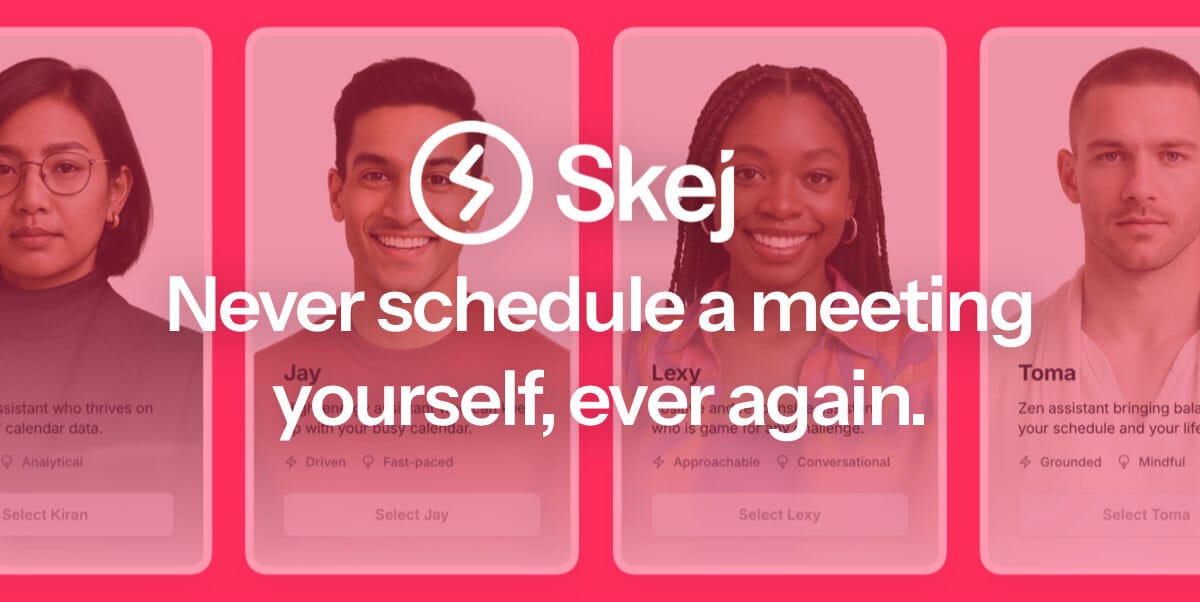- LIVE RICH RETIRE RICH
- Posts
- The Emergency Savings Crisis And The Financial System That Will Save You
The Emergency Savings Crisis And The Financial System That Will Save You

Meet your new assistant (who happens to be AI).
Skej is your new scheduling assistant. Whether it’s a coffee intro, a client check-in, or a last-minute reschedule, Skej is on it. Just CC Skej on your emails, and it takes care of everything:
Customize your assistant name, email, and personality
Easily manages time zones and locales
Works with Google, Outlook, Zoom, Slack, and Teams
Skej works 24/7 in over 100 languages
No apps to download or new tools to learn. You talk to Skej just like a real assistant, and Skej just… works! It’s like having a super-organized co-worker with you all day.

My friends,
There are moments in economic history when the most brilliant move is not glamorous, complicated, or innovative. It is basic. It is foundational. And right now, in a season marked by elevated inflation, market volatility, rising interest rates, layoffs, and global uncertainty, the most powerful financial decision you can make is simple:
Build an emergency savings fund that is automatic, protected, and untouchable.
If that sounds simple, you are right.
If that sounds impossible, you are not alone.
And if you think you need more income to begin, let me assure you:
You do not need more money.
You need a system, a percentage, a habit, and a structure that protects you even on your hardest days.

The Reality: Most Households Are One Crisis Away From Collapse
The numbers tell a clear and concerning story.
• 57 percent of Americans cannot cover a 1,000 dollar emergency.
• More than one-third cannot cover a 400 dollar unexpected expense without borrowing.
• Even households earning six figures often have less than one month of savings.
• Households with emergency funds experience significantly less financial stress in times of economic volatility.
This is not a personal failing. This is a structural issue. The truth is simple:
Most people are not lacking discipline.
They are lacking systems, automation, and clarity.
And those are exactly what we are going to build.

A Workplace Solution That More Employers Should Offer
There is a financial benefit that deserves far more attention: an employer-sponsored emergency savings account funded through automatic paycheck deductions.
To be clear, this is not a retirement account you borrow from.
This is an entirely separate, FDIC-insured savings account owned by you and funded quietly in the background every time you get paid.
Suze Orman, whom I have followed for decades, co-founded SecureSave, a company partnering with employers to make this benefit easy to offer and easy for employees to activate. The financial services world is finally catching up to a truth many of us have championed for years:
Emergency savings are the foundation of a financially secure life.
Year after year, more employers are adding this benefit. The research is undeniable:
• Employees with an automatic emergency savings plan report higher financial well-being
• They experience less day-to-day stress
• Their focus and productivity at work increase
• Employers benefit through reduced burnout and increased retention
When open enrollment season arrives, review your benefits closely.
If your employer offers an emergency savings payroll deduction, take advantage of it immediately.
If they do not, speak with colleagues and let your HR team know that this benefit is in increasing demand. It is not a favor. It is a smart workforce strategy.
While you wait for your employer to catch up, you can still open a companion savings account through your existing bank in under ten minutes.
Automation will do the rest.
My Story: The Courage Cushion That Made Everything Possible
Before NAZ Global existed as a whole business, before my coaching programs, before the books and the speaking, there was one quiet financial force that made it all possible.
My emergency savings.
When I left my steady corporate role and stepped out on my own, nothing was guaranteed. There were months when things did not work as planned. There were moments of doubt, stress, and uncertainty.
That small but reliable account gave me something priceless.
It gave me time.
It gave me stability.
It gave me breathing room.
It gave me the chance to learn, pivot, fall, rise, and keep going.
I did not take that leap because I was fearless.
I took it because I had a system that protected me.
And that is exactly what I want for you.
QUIZ: How Emergency Ready Are You?
Answer honestly. This is not a judgment. It is insight.
How many months of living expenses do you have saved?
A. None
B. Less than 1 month
C. 1 to 3 months
D. 3 to 6 months
E. 6 to 12 or moreIf a 500 dollar emergency occurred today, how would you handle it?
A. Credit card
B. Borrow from someone
C. Panic
D. Use savings
E. Handle it calmlyIs your savings automated?
A. Not at all
B. Only sometimes
C. On payday but inconsistent
D. Fully automated
E. Automated with a percentage structureWhat percentage of your income goes to savings?
A. Zero
B. 1 to 3 percent
C. 4 to 7 percent
D. 8 to 12 percent
E. 13 percent or higherHow confident are you in handling financial emergencies?
A. Not confident
B. Slightly confident
C. Neutral
D. Confident
E. Very confident
Answers and interpretation are included at the end of this newsletter.

Why Emergency Savings Is Emotional Wealth
Let us talk about the emotional side of this.
When your emergency fund is empty, life feels unstable.
You may stay in a job you no longer value.
You may tolerate situations that undermine your peace.
You may avoid opportunities because failure feels unaffordable.
Your decision-making becomes reactive rather than strategic.
But when you have even a small cushion, everything shifts.
You breathe differently.
You negotiate differently.
You choose differently.
You respond instead of react.
An emergency fund is not just financial. It is psychological. It is emotional protection. It is dignity and autonomy.
More Ways to Build Your Emergency Fund
People need more than one pathway. Here are practical, accessible ways to build your savings faster.
1. Round-Up Apps
Apps like Acorns, Qapital, Chime round-up, or bank round-up features automatically save the spare change from your purchases.
2. Direct Deposit Split
Have part of your paycheck sent directly to your savings account. You cannot spend what never enters your checking account.
3. High-Yield Online Savings Accounts
Banks such as Ally, Marcus by Goldman Sachs, Capital One 360, Discover, and SoFi offer interest rates significantly higher than those of traditional banks.
4. Automatic Transfers
Schedule transfers weekly, biweekly, monthly, or immediately after payday.
5. Cash Back To Savings
Redirect rewards and cashback from cards or apps like Rakuten, Ibotta, or Upside straight to your emergency fund.
6. Sell Unused Items Quarterly
Most households have extra items that can be sold through Facebook Marketplace, OfferUp, Poshmark, or Mercari.
7. One Mini-Win Per Month
Cancel one subscription, negotiate one bill, or cut one unnecessary expense per month and direct the savings to your fund.
8. Allocate Windfalls
Dedicate a percentage of tax refunds, bonuses, or unexpected income directly to savings.
Systems build safety. Safety builds wealth.
The Live Rich Retire Rich Emergency Savings System
Here is the structure I teach:
Open a separate account specifically for emergencies.
Choose a percentage rather than a fixed number.
Automate the transfer.
Build milestones.
Protect the account from non-emergencies.
Review your system quarterly and adjust as needed.
This is how stability grows.
Quiz Answers
Savings Months
A or B indicates vulnerability.
C indicates a strong start.
D or E indicates solid stability.Response to a 500 Dollar Emergency
A, B, or C shows a need for improved savings systems.
D shows readiness.
E indicates full preparedness.Automation
A or B indicates risk.
C is developing.
D and E indicate long-term success.Savings Percentage
A needs immediate attention.
B or C shows progress.
D or E reflects healthy financial discipline.Confidence Level
Your confidence mirrors the strength of your systems.
Final Thoughts
You deserve to feel safe.
You deserve to build wealth calmly and intentionally.
You deserve financial independence, stability, and long-term security.
Do not wait for the economy to improve.
Do not wait for a better job.
Do not wait for a perfect moment.
Begin now.
Small actions will compound into lasting stability.
Your emergency fund is your financial anchor, your emotional safeguard, and your pathway to future freedom. And I learned firsthand that your dreams stand taller when your foundation is strong.
With love & Abundance,
Najma Zanelli
Explore Offerings
Founder, NAZ Global Consultancy
Follow me on IG: @najma_zanelli
Email: [email protected]


Reply